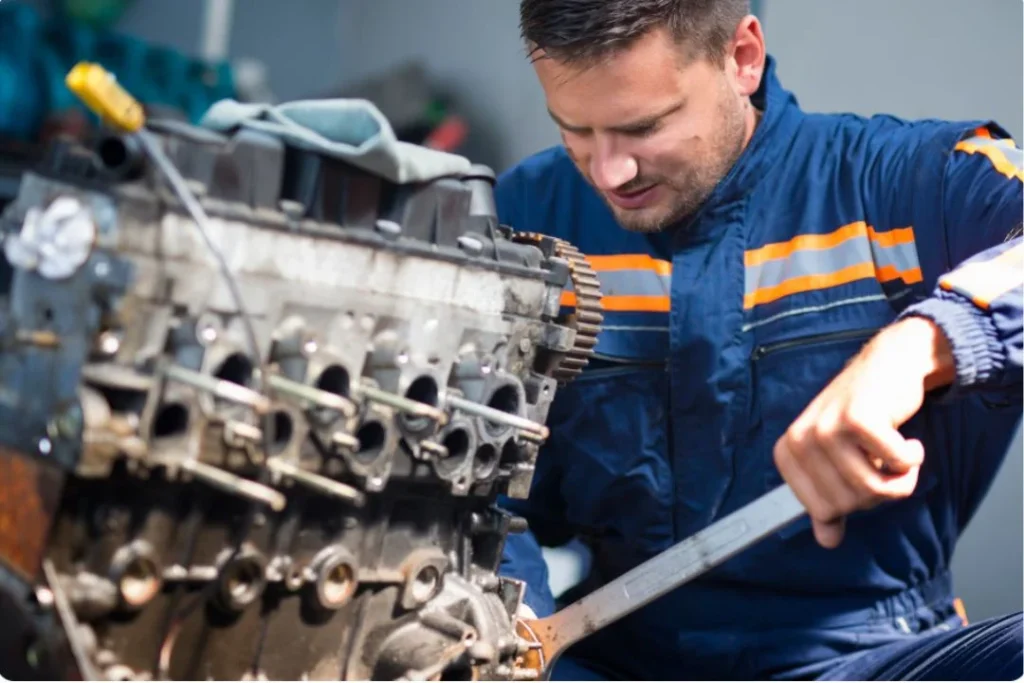Introduction to Engine Performance Upgrades
When it comes to enhancing your vehicle, engine performance upgrades are at the forefront of every car enthusiast’s mind. From classic muscle cars to modern sports vehicles, drivers across the USA are constantly seeking ways to extract more power, efficiency, and reliability from their engines. Whether you’re a casual driver looking to improve fuel economy or a performance enthusiast aiming for track-ready acceleration, understanding engine performance upgrades is essential.
What Are Engine Performance Upgrades?
Engine performance upgrades refer to modifications and enhancements made to a vehicle’s engine and related components to improve its overall performance. These improvements can include boosting horsepower, increasing torque, optimizing fuel efficiency, or enhancing engine durability. Unlike cosmetic modifications, which focus solely on a vehicle’s appearance, engine performance upgrades directly impact how your car drives, responds, and handles under various conditions.
In simple terms, any modification that makes your engine deliver more power, better throttle response, or improved reliability falls under the category of engine performance upgrades. This includes both mechanical modifications, such as installing a turbocharger or upgrading the exhaust system, and software enhancements, like ECU tuning or remapping.
Why Engine Performance Upgrades Are Important
In the USA, car culture is deeply ingrained, with millions of drivers taking pride in customizing and upgrading their vehicles. Engine performance upgrades offer numerous benefits that appeal to a wide range of drivers:
Increased Horsepower and Torque
The most obvious benefit of performance upgrades is the boost in engine power. Higher horsepower improves acceleration and overall speed, while increased torque enhances towing capacity and hill-climbing ability—particularly important for trucks and SUVs commonly used in the United States.
Improved Fuel Efficiency
While it may seem counterintuitive, certain upgrades can actually improve fuel economy. Performance enhancements like a high-flow air intake or optimized fuel injection can make your engine operate more efficiently, reducing wasted fuel and improving mileage.
Enhanced Driving Experience
A vehicle that responds better to your inputs is simply more enjoyable to drive. Upgrades like ECU tuning, performance exhausts, and upgraded camshafts make throttle response sharper, engine sounds more thrilling, and the overall driving experience more engaging.
Increased Engine Longevity
Some engine performance upgrades aren’t just about speed—they help your engine last longer. High-quality components like performance radiators, intercoolers, and upgraded oil systems reduce wear and tear, ensuring your engine remains reliable even under high stress.
Popular Engine Performance Upgrades in the USA
Car enthusiasts across the United States have access to a wide variety of upgrades. The popularity of each upgrade depends on the type of vehicle, driving habits, and personal preferences. Here are some of the most common performance upgrades:
- Cold Air Intakes: By allowing cooler, denser air into the engine, cold air intakes can increase combustion efficiency and boost horsepower.
- Exhaust System Upgrades: High-performance exhausts reduce backpressure, improve airflow, and create that signature aggressive engine sound many drivers crave.
- Turbochargers and Superchargers: Forced induction systems like turbos and superchargers dramatically increase engine power by forcing more air into the combustion chamber.
- ECU Tuning and Remapping: Modern engines rely heavily on electronic control units (ECUs). Tuning the ECU optimizes fuel delivery, ignition timing, and boost pressure, unlocking hidden engine potential.
- Performance Camshafts: Upgrading camshafts improves valve timing, resulting in better airflow, more power, and higher engine efficiency.
Each of these upgrades can be tailored to your specific vehicle model, whether you drive a Ford Mustang, Chevrolet Camaro, Dodge Challenger, or even a modern electric vehicle.
Who Should Consider Engine Performance Upgrades?
Engine performance upgrades aren’t just for professional racers or car show enthusiasts. In the USA, a wide range of drivers can benefit:
- Performance Enthusiasts: For those who love speed, acceleration, and handling, engine upgrades transform the driving experience.
- Truck Owners and Towing Enthusiasts: Upgrades can provide additional torque and horsepower needed for towing trailers, boats, or heavy equipment.
- Daily Drivers: Even everyday drivers can benefit from improved throttle response, better fuel efficiency, and enhanced engine reliability.
- DIY Hobbyists: Many enthusiasts enjoy the hands-on process of upgrading engines themselves, learning automotive skills along the way.
Understanding your goals and needs is critical before diving into engine performance upgrades. Without a clear plan, you risk investing in parts that don’t complement your vehicle or driving style.
Engine Performance Upgrades: A Blend of Art and Science
Upgrading an engine is both a science and an art. It requires a deep understanding of mechanical engineering, fuel dynamics, and vehicle electronics, as well as an appreciation for the aesthetics of sound, vibration, and speed. In the USA, where car culture thrives, this blend of technical precision and creative expression is what makes engine performance upgrades so exciting.
Every modification should be approached thoughtfully. For example, simply installing a turbocharger on an engine that isn’t designed for forced induction can lead to engine failure. Conversely, carefully selected upgrades can turn a stock car into a finely tuned powerhouse without compromising reliability.
Why Engine Performance Upgrades Matter
For car enthusiasts and everyday drivers alike, the decision to invest in engine performance upgrades goes far beyond simple aesthetics. In the United States, where car culture runs deep and automotive technology is constantly evolving, upgrading an engine is a way to enhance not only speed and power but also safety, efficiency, and reliability. Understanding the reasons why engine performance upgrades matter is crucial before diving into any modifications.
Maximizing Engine Power and Performance
The most obvious reason drivers invest in engine performance upgrades is to boost their vehicle’s power output. Stock engines are designed by manufacturers to balance performance, fuel efficiency, and durability for the general population. However, enthusiasts and professionals often desire higher performance levels than stock engines provide.
Horsepower and Torque

- Horsepower represents the engine’s ability to perform work over time. Upgrades like turbochargers, superchargers, and high-flow exhaust systems can significantly increase horsepower, giving vehicles faster acceleration and higher top speeds.
- Torque measures the engine’s rotational force, which affects towing capacity and acceleration at lower speeds. Upgrades such as performance camshafts and fuel system enhancements can dramatically improve torque, which is particularly important for trucks and SUVs commonly used in the USA.
By strategically combining horsepower and torque upgrades, drivers can achieve a more balanced and responsive driving experience.
Enhanced Driving Experience
Engine performance upgrades aren’t just about numbers on a dyno—they profoundly impact how a vehicle feels on the road. Drivers often report:
- Sharper Throttle Response: Performance upgrades like ECU tuning and high-flow intakes make the engine respond more quickly to acceleration inputs.
- Better Sound and Feel: Exhaust system upgrades and performance headers not only improve airflow but also create the thrilling engine sounds that enthusiasts crave.
- Smoother Power Delivery: Properly chosen upgrades reduce lag, uneven acceleration, and other issues that can make stock engines feel sluggish or unresponsive.
In the USA, where long highway drives, off-road adventures, and spirited weekend drives are common, these enhancements contribute to a more enjoyable driving experience.
Increased Fuel Efficiency
While it may seem counterintuitive, certain engine performance upgrades can improve fuel efficiency when done correctly. Stock engines are designed to accommodate a wide range of conditions, which sometimes leads to inefficiencies. Performance upgrades can optimize combustion and airflow, ensuring that fuel is burned more effectively.
- Cold Air Intakes bring cooler, denser air into the engine, allowing more efficient combustion.
- ECU Tuning adjusts fuel injection timing and ignition, reducing wasted fuel while maximizing power.
- High-Performance Exhaust Systems reduce backpressure and improve airflow, which can also help with fuel efficiency.
The key is balance—improper or extreme upgrades may improve power but hurt fuel economy. Choosing upgrades wisely ensures a vehicle performs better without consuming extra fuel.
Improving Engine Longevity and Reliability
Performance upgrades aren’t just about making your car faster—they can also make it more reliable. Engines operating under stress, such as towing, high-speed driving, or off-road conditions, can benefit from upgrades that improve cooling, lubrication, and airflow.
- Upgraded Radiators and Intercoolers prevent overheating during intense driving conditions.
- High-Quality Performance Oils and Lubrication Systems reduce engine wear over time.
- Enhanced Fuel Delivery Systems ensure consistent fuel flow, which prevents knocking and detonation.
By upgrading key engine components, drivers in the USA can extend the lifespan of their vehicles, even under demanding conditions.
Adapting to Specific Driving Needs
Different drivers have different goals. Engine performance upgrades allow customization to meet specific driving styles or needs:
- Performance Enthusiasts: Track racers and sports car drivers may focus on horsepower, torque, and handling for competitive advantage.
- Truck and SUV Owners: Drivers who tow trailers, haul cargo, or travel off-road often prioritize torque, engine cooling, and reliability upgrades.
- Eco-Conscious Drivers: Some upgrades, like ECU tuning and optimized air intakes, can improve fuel efficiency, reducing carbon emissions without sacrificing performance.
This adaptability is why engine performance upgrades have become so popular in the USA, where drivers seek vehicles that suit both their lifestyle and their environment.
Supporting the American Car Culture
The USA has a rich history of automotive culture, from classic muscle cars to modern performance vehicles. Engine performance upgrades are a key part of this culture, allowing enthusiasts to personalize their vehicles, join car communities, and participate in events like drag races, car shows, and track days.
- Classic Muscle Cars: Owners of Ford Mustangs, Chevrolet Camaros, and Dodge Challengers often upgrade engines to preserve the legacy of American muscle while improving performance.
- Modern Sports Cars: Cars like the Chevrolet Corvette or Tesla Model S Performance benefit from ECU tuning and aftermarket enhancements to maximize potential.
- Truck and Off-Road Vehicles: Pickup trucks, SUVs, and off-road vehicles receive upgrades to enhance torque, suspension, and engine reliability for demanding tasks.
Engine upgrades aren’t just technical—they’re also a way to express personal style and passion for cars.
Economic and Resale Value Considerations
While performance upgrades involve an upfront cost, they can also impact the long-term value of a vehicle. A well-maintained car with carefully chosen upgrades may:
- Hold its value better among enthusiasts looking for pre-upgraded vehicles.
- Offer better performance for the same vehicle price when compared to stock models.
- Reduce long-term repair costs by preventing engine strain and improving reliability.
It’s important to note, however, that over-modification or poorly executed upgrades can have the opposite effect, so knowledge and careful planning are essential.
Staying Competitive in Motorsports and Recreational Driving
For drivers involved in motorsports, drag racing, or recreational track days, engine performance upgrades are not optional—they are essential. Even small modifications can make significant differences in lap times, acceleration, and overall competitiveness.
- Drag Racing: Turbochargers, superchargers, and ECU tuning provide the extra power needed for explosive starts.
- Track Racing: Camshaft upgrades and high-performance suspension integration enhance handling and acceleration.
- Off-Road Racing: Upgraded cooling systems, torque improvements, and reinforced engines keep vehicles performing under extreme stress.
In the USA, where motorsports are widely popular, engine upgrades are often a prerequisite for competitive participation.
Frequently Asked Questions (FAQs) About Engine Performance Upgrades
What are engine performance upgrades?
Engine performance upgrades are modifications made to a vehicle’s engine or related components to improve its power, efficiency, reliability, and overall driving experience. These upgrades can include mechanical changes like turbochargers, camshafts, and exhaust systems, as well as software enhancements such as ECU tuning.
Aengine performance upgrades legal in the USA?
Yes, but it depends on the state and type of upgrade. Some modifications, particularly those that alter emissions or exceed noise limits, may be restricted in certain states. It’s essential to check local regulations and EPA standards before making upgrades.
Will upgrading my engine void my warranty?
Many performance upgrades can void manufacturer warranties, especially if they directly modify engine components or ECU programming. Always consult your vehicle’s warranty terms and consider aftermarket warranties if you plan significant modifications.
How much do engine performance upgrades cost?
The cost varies widely depending on the type of upgrade, vehicle model, and whether you do it yourself or hire a professional. Basic upgrades like air intakes and exhausts can cost a few hundred dollars, while high-end upgrades like turbochargers, superchargers, or full ECU remapping can run several thousand dollars.
Can I install performance upgrades myself?

Some upgrades, like cold air intakes or basic exhaust systems, can be installed by DIY enthusiasts with mechanical experience. However, complex modifications such as forced induction systems, camshaft upgrades, or ECU tuning usually require professional installation to ensure safety and reliability.
Conclusion
Engine performance upgrades are a powerful way for drivers in the USA to enhance their vehicles, whether for speed, efficiency, reliability, or personalization. From mechanical enhancements like turbochargers and exhaust systems to software optimizations like ECU tuning, the possibilities are nearly endless.
These upgrades offer measurable benefits:
- Increased Horsepower and Torque: More power for acceleration, towing, and spirited driving.
- Improved Fuel Efficiency: Optimized components can reduce fuel consumption.
- Enhanced Driving Experience: Better throttle response, handling, and engine sound.
- Engine Longevity: High-quality upgrades reduce wear and tear on critical components.
However, it’s crucial to approach engine performance upgrades responsibly. Research your vehicle, understand local laws, and choose high-quality components. Whether you are a muscle car enthusiast, truck owner, or daily driver, the right upgrades can transform your driving experience while keeping your engine safe and reliable.
By understanding the benefits, types, and considerations of engine performance upgrades, you can make informed decisions that maximize your vehicle’s potential. Whether for the thrill of the open road, competitive racing, or efficient daily driving, performance upgrades are an investment in both your car and your driving enjoyment.
